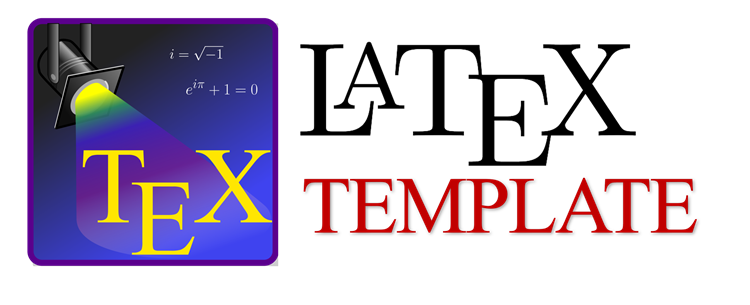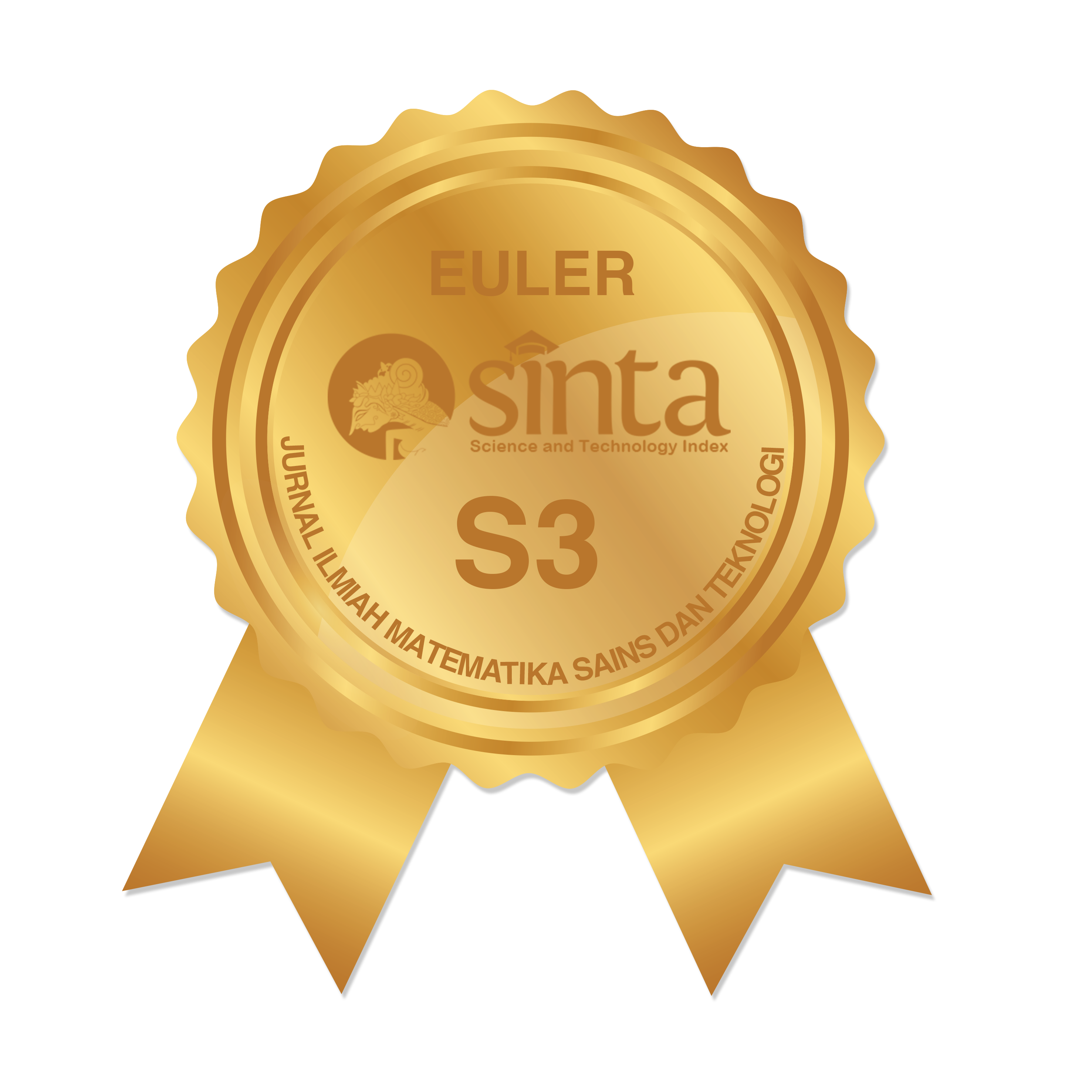Mathematics Education Students' Understanding of Exponent Concepts Based on Cognitive Style
Abstract
Keywords
Full Text:
PDFReferences
A. Rahman et al., "The Implementation of APIQ Creative Mathematics Game Method in the Subject Matter of Greatest Common Factor and Least Common Multiple in Elementary School," Journal of Physics: Conference Series, 2018, vol. 954, no. 1, p. 12011. DOI: 10.1088/1742-6596/954/1/012011.
Hikmahturrahman, N. Arsyad, and H. Upu, "The analysis of higher order thinking skills in solving PISA (programme for international student assessment) questions for Xth grade students," International Conference on Education Studies and Mathematics, vol. 611, pp. 246-251, 2021. DOI: 10.2991/assehr.k.211211.041.
M. Ridho’i and D. R. Agustin, "Analisis Kesalahan Konsep Siswa SMK Dalam Menyelesaikan Soal Eksponen Ditinjau Dari Gaya Belajar," JPIn Jurnal Pendidikan Indonesia, vol. 5, no. 2, pp. 675-682, 2022.
J. Junengsih and S. Sutirna, "Analisis Kesulitan Siswa dalam Mengerjakan Soal pada materi Eksponen," Jurnal Ilmiah Dikdaya, vol. 12, no. 1, pp. 28-32, 2022. DOI: 10.33087/dikdaya.v12i1.303.
I. A. Rostiana and I. N. Aini, "Deskripsi kemampuan pemahaman matematis siswa dalam menyelesaikan soal eksponen kelas X SMA," EduMatSains Jurnal Pendidikan, Matematika dan Sains, vol. 7, no. 1, pp. 139-152, 2022.
B. H. L. Padian, S. Subarinah, R. Y. Tyaningsih, and H. Soeprianto, "Analisis Kemampuan Pemecahan Masalah Materi Sistem Persamaan Linier Tiga Variabel Ditinjau Dari Gaya Kognitif Siswa," Jurnal Classroom Action Research, vol. 5, no. 2, pp. 73-80, 2023. DOI: 10.29303/jcar.v5i2.3050.
N. A. Nisa, S. Prayitno, N. Hikmah, et al., "Analisis Kemampuan Berpikir Kritis Matematis Pokok Bahasan Aritmatika Sosial Ditinjau dari Gaya Kognitif Siswa," Jurnal Classroom, vol. 6, no. 1, 2024.
M. Yanzhur, A. Asdar, and R. Rusli, "Analisis Kesalahan Pemahaman Konsep dan Prinsip pada Materi Fungsi Berdasarkan Gaya Kognitif Siswa," Universitas Negeri Makassar, Makassar, 2019.
D. Kurniasari and T. Sritresna, "Kesulitan pemecahan masalah matematis siswa berdasarkan self-esteem pada materi statistika," Jurnal Inovasi Pembelajaran Matematika PowerMathEdu, vol. 1, no. 1, pp. 47-56, 2022. DOI: 10.31980/pme.v1i1.1365.
R. Wijayanti, E. Yusmin, and D. Fitriawan, "Pemahaman Konsep pada Materi Fungsi Eksponensial Ditinjau dari Gaya Belajar Siswa di SMA," Equality Jurnal Ilmiah Pendidikan Matematika, vol. 6, no. 1, pp. 1-12, 2023. DOI: 10.46918/equals.v6i1.1698.
L. Septiani and H. Pujiastuti, "Analisis kemampuan pemahaman konsep matematis siswa sekolah menengah pertama berdasarkan gaya kognitif," Media Pendidikan Matematika, vol. 8, no. 1, pp. 28-41, 2020.
F. Y. Sari, N. Supriadi, and R. W. Y. Putra, "Model Pembelajaran CUPs Berbantuan Media Handout: Dampak terhadap Kemampuan Pemahaman Konsep Matematis ditinjau dari Gaya Kognitif," Mosharafa: Jurnal Pendidikan Matematika, vol. 11, no. 1, pp. 95-106, 2022. DOI: 10.31980/mosharafa.v11i1.690.
S. Rismen, R. Juwita, and U. Devinda, "Profil kemampuan pemecahan masalah matematika siswa ditinjau dari gaya kognitif reflektif," Jurnal Cendekia: Jurnal Pendidikan Matematika, vol. 4, no. 1, pp. 163-171, 2020.
R. Masfufah and E. A. Afriansyah, "Analisis Kemampuan Literasi Matematis Ditinjau dari Gaya Belajar Siswa SMP pada Pembelajaran Daring," PERISAI: Jurnal Pendidikan dan Riset Ilmu Sains, vol. 1, no. 1, pp. 1-13, 2022. DOI: 10.32672/perisai.v1i1.52.
D. Sugiyono, "Metode Penelitian Pendidikan Pendekatan Kuantitatif, Kualitatif dan R&D," 2013. Diakses melalui: [Digilib Unigres](https://digilib.unigres.ac.id/index.php?p=show_detail&id=43).
M. B. Miles, A. M. Huberman, and J. Saldaña, "Qualitative Data Analysis: A Methods Sourcebook," 3rd ed., Thousand Oaks, CA: Sage, 2014. DOI: 10.1177/1098214014556146.
S. Khodijah, M. Mailizar, and L. M. Eva, "Analisis Kemampuan Pemahaman Konsep Matematika Siswa Kelas X SMA Uswatun Hasanah pada Materi Eksponen dan Logaritma," Himpunan: Jurnal Ilmiah Mahasiswa Pendidikan Matematika, vol. 3, no. 2, pp. 283-290, 2023.
W. N. Rohmah, A. Septian, and S. Inayah, "Analisis kemampuan penalaran matematis pada materi bangun ruang ditinjau dari gaya kognitif siswa SMP," Prisma, vol. 9, no. 2, pp. 179-191, 2020.
H. Istigosah and M. A. Noordyana, "Kemampuan pemecahan masalah matematis ditinjau gaya kognitif siswa pada materi sistem persamaan linear dua variabel," Jurnal Inovasi Pembelajaran Matematika PowerMathEdu, vol. 1, no. 2, pp. 149-160, 2022. DOI: 10.31980/powermathedu.v1i2.2227.
N. E. Zakiah, "Level kemampuan metakognitif siswa dalam pembelajaran matematika berdasarkan gaya kognitif," Jurnal Riset Pendidikan Matematika, vol. 7, no. 2, pp. 132-147, 2020. DOI: 10.21831/jrpm.v7i2.30458.
M. Farhan, A. R. Hakim, and M. T. Apriyanto, "Kontribusi Kecerdasan Emosional Terhadap Motivasi Belajar Siswa Pada Pembelajaran Matematika," Plusminus: Jurnal Pendidikan Matematika, vol. 2, no. 3, pp. 417-428, 2022. DOI: 10.31980/plusminus.v2i3.1116.
DOI: https://doi.org/10.37905/euler.v13i1.30137
Refbacks
- There are currently no refbacks.
Copyright (c) 2025 Hikmahturrahman, Suhardiman Darson Tamu, Nosva Adam Yunus, Febiyanti R. Hasan, Rizal Masaniku

This work is licensed under a Creative Commons Attribution-NonCommercial 4.0 International License.
Euler : Jurnal Ilmiah Matematika, Sains dan Teknologi has been indexed by:
EDITORIAL OFFICE OF EULER : JURNAL ILMIAH MATEMATIKA, SAINS, DAN TEKNOLOGI |
 | Department of Mathematics, Faculty of Mathematics and Natural Science, Universitas Negeri Gorontalo Jl. Prof. Dr. Ing. B. J. Habibie, Tilongkabila, Kabupaten Bone Bolango 96554, Gorontalo, Indonesia |
 | Email: euler@ung.ac.id |
 | +6287743200854 (WhatsApp Only) |
 | Euler : Jurnal Ilmiah Matematika, Sains dan Teknologi (p-ISSN: 2087-9393 | e-ISSN:2776-3706) by Department of Mathematics Universitas Negeri Gorontalo is licensed under a Creative Commons Attribution-NonCommercial 4.0 International License. Powered by Public Knowledge Project OJS. |















